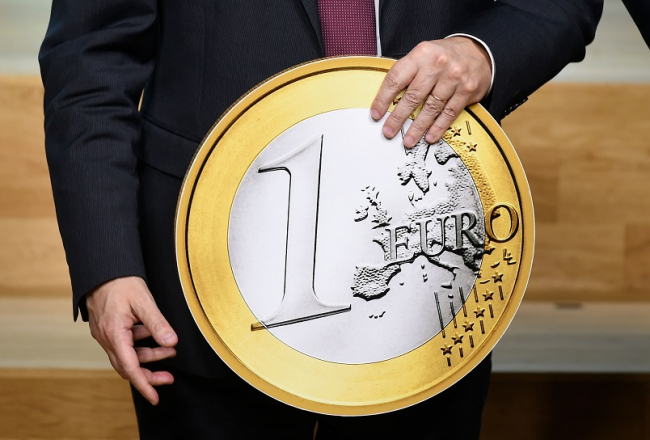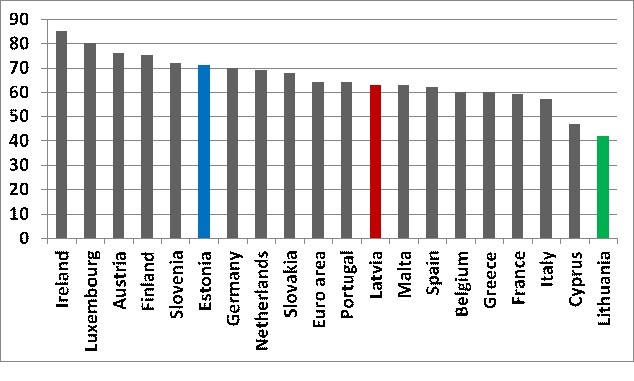
Foto: AFP/Scanpix
On 1 January 2019 Latvia could celebrate 5 years since joining the Eurozone while the zone itself could look at 20 years since its formation.
Below just a few reflections on Latvia in the Eurozone – an experience I think has been very successful. And will provide eight reasons for that.
1) The euro is actually popular in Latvia, see Figure 1. About 2/3 of respondents answer yes to the question of the euro being a good thing for the country. 19% answered that it was not. And don’t ask me why they are much more negative in Lithuania….
Figure 1: % of respondents answering “yes” to the question: “Having the euro is a good thing for your country?”
Source: European Commission, Eurobarometer 473, October 2018, p. 11
2) Devaluation?!? A word used quite often around the financial crisis; now it seems to have vanished. But imagine if we still had the lats – I am quite sure the lat might have come under pressure when the ABLV affair materialized in February of 2018. With the euro, nothing like that happened, of course.














